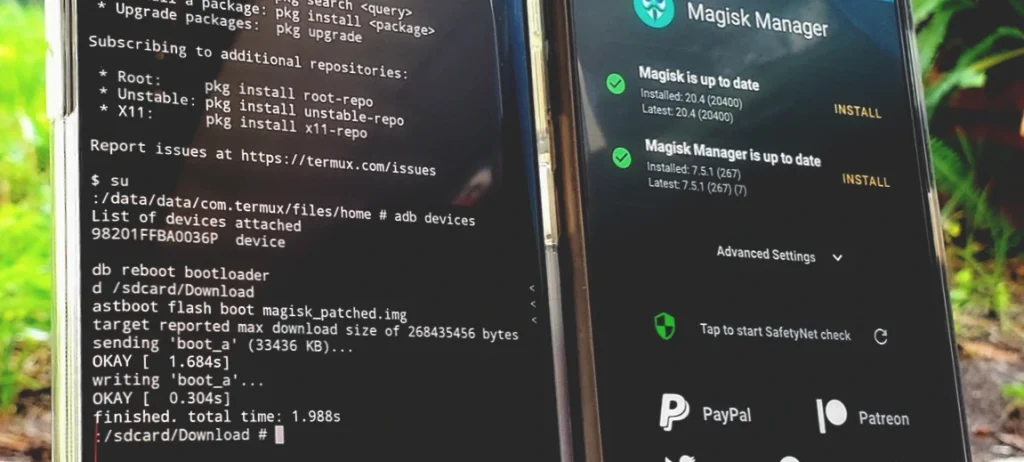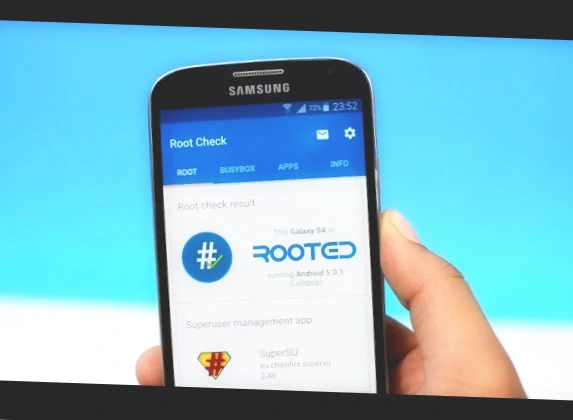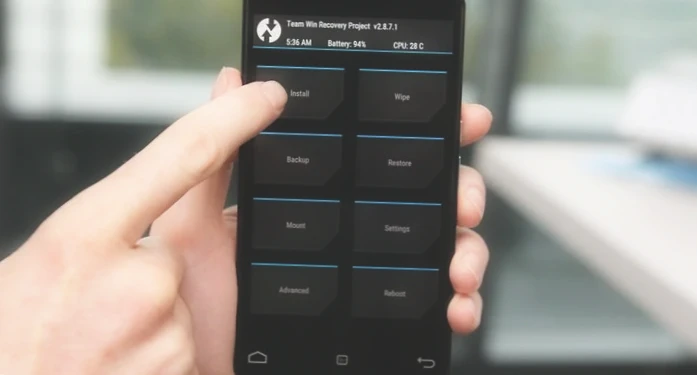The act of rooting Android devices has captivated the interest and ignited discussions among both tech enthusiasts and everyday users. In an era marked by continuous advancements in hardware and software, it becomes pertinent to delve into the question of whether rooting your Android phone continues to hold significance.
This comprehensive exploration delves deep into the world of Android device rooting, meticulously scrutinizing its enduring benefits, potential drawbacks, and its role within the modern landscape of smartphones and tablets.
As the boundaries of mobile technology expand, let’s unravel the intricate tapestry of rooting, dissecting its relevance in today’s fast-evolving digital realm.
Exploring Android Device Rooting: Unlocking Elevated Control

The practice of rooting an Android device centers on the acquisition of elevated administrative privileges, often referred to as “root access,” within the underlying operating system. This heightened permission level grants users unprecedented authority to access and modify system files and configurations that are typically restricted by device manufacturers and network providers.
With root access secured, users’ step into a realm of enhanced control over their Android devices. This newfound level of control empowers individuals to craft their device experience in ways previously unattainable.
By delving into system intricacies, users can personalize, amplify, and fine-tune their device interactions to perfectly align with their unique preferences.
Current Advantages of Rooting Your Android Device

While rooting may not be as mainstream as before, it still offers compelling benefits for those willing to explore:
- Advanced Customization: Rooting opens the door to deep customization, allowing you to modify system fonts, themes, and boot animations. While some level of customization can be achieved through third-party launchers, root access provides a more comprehensive and intricate level of control over your device’s appearance and behavior.
- System-Wide Ad Blocking: With root access, you can block ads across your entire system without relying on VPNs or external apps. This feature is especially attractive to users seeking to eliminate intrusive ads from both apps and websites, leading to a more seamless and enjoyable user experience.
- Enhanced Backups and System Restoration: Rooting empowers you to perform thorough backups that encompass not only your apps but also their data and your system settings. This becomes incredibly useful during device transitions or after performing factory resets, ensuring you can swiftly restore your device to a familiar state.
- Access to Specialized Apps: Certain applications require root access to fully unleash their capabilities. These include advanced file management tools, system monitoring apps, and automation utilities. Rooting grants you access to a realm of specialized apps that can significantly enhance your device’s functionality.
- Performance Optimization: Rooting gives you the ability to delve into CPU governors and custom kernels, allowing you to finely tune your device’s performance and battery efficiency. This level of optimization goes beyond what’s possible on non-rooted devices, offering a tailored experience that matches your preferences.
- Removal of System Apps: Rooting empowers you to remove pre-installed system apps that are typically not removable on non-rooted devices. This helps declutter your device, freeing up valuable storage space and potentially improving system performance.
- Overcoming Manufacturer Limitations: Rooting enables you to bypass or modify restrictions imposed by manufacturers or carriers. This can unlock features that were otherwise unavailable, such as call recording or audio enhancements, giving you greater control over your device’s capabilities.
While rooting does come with its share of considerations and potential risks, these current benefits illustrate that it still holds value for those seeking to extract more from their Android experience. As always, making an informed decision based on your individual needs and comfort level is key when considering rooting your device.
Insights from User Feedback: Embracing Android Rooting with 52 Reasons

The wealth of user feedback provides valuable insights into the myriad reasons that continue to fuel interest in Android rooting:
- Custom ROMs: Installing custom ROMs to unlock extra features and customization options.
- Total Device Control: Exercising comprehensive control over the device through deep system-level changes.
- System-Wide Ad Blocking: Effectively blocking ads across the system without relying on VPNs or external apps.
- Battery Behavior Customization: Tweaking battery charging behavior for a longer battery lifespan.
- Enhanced Backup and Restore: Facilitating seamless app data backups and simplified restoration.
- Access to /data/ Folder: Utilizing root access to perform advanced tasks via the /data/ folder.
- Unrestricted Customization: Achieving deeper UI customization and theming beyond stock Android’s capabilities.
- Playground for Tinkering: Appealing to enthusiasts who relish tinkering and experimenting with device settings.
- Call Recording: Rooting to access features like call recording, often lacking in stock Android.
- Macro Automation: Employing macro apps for automating various tasks.
- App Modifications: Modifying apps to eliminate ads, introduce new features, or alter their behavior.
- Bloatware Removal: Easily uninstalling pre-installed bloatware from the device.
- Access to Linux Commands: Utilizing Linux commands and tools on rooted devices.
- Comprehensive Backup Solutions: Rooting for complete backup solutions, encompassing app data.
- Ownership Philosophy: Viewing rooting as a means of asserting device ownership and control.
- Custom Kernels for Performance: Installing custom kernels to optimize device performance and battery life.
- Access to /system/ Partition: Modifying system files by gaining access to the /system/ partition.
- Custom Recovery Installation: Installing custom recoveries like TWRP for performing advanced tasks.
- Expanded Backup Options: Leveraging advanced backup options enabled by root access.
- Surpassing Manufacturer Limits: Overcoming limitations imposed by manufacturers to unlock additional features.
- Enhanced CPU Efficiency: Undertaking CPU undervolting to enhance battery efficiency.
- Kernel Fine-Tuning: Tweaking kernel settings to achieve improved performance and battery life.
- Device Spoofing: Facilitating device identification and location spoofing.
- Advanced Charging Settings: Accessing advanced battery charging settings.
- Terminal Emulators: Running terminal emulators to execute advanced commands.
- Troubleshooting with Logs: Analyzing system logs to troubleshoot device issues.
- Privacy Control: Gaining more granular control over app permissions and privacy settings.
- Complete OS Control: Exerting full control over the operating system for heightened customization.
- Bypassing Restrictions: Overcoming system and app-level restrictions through rooting.
- Alternate App Markets: Accessing alternative app markets via root access.
- Extensive System Modification: Modifying almost every aspect of the system for tailored experience.
- Optimizing Older Devices: Reviving older devices through performance and battery optimizations.
- Reverting Android Versions: Enabling downgrades to previous Android versions.
- Kernel-Level Tweaks: Making nuanced tweaks to the kernel for improved stability and performance.
- Enhanced Gaming: Modifying games for added enhancements and cheats.
- Audio Enhancement: Rooting to achieve superior audio quality through enhancements like Viper4Android.
- Control Over Updates: Dictating when and how system updates are implemented.
- App Behavior Management: Exercising control over app behavior beyond stock Android’s confines.
- Discovering Hidden Features: Rooting uncovers hidden or developer features within Android.
- Advanced Automation: Crafting intricate automation scripts empowered by root access.
- Complete Device Backup: Backing up the entire device for effortless restoration.
- Root-Required Apps: Unlocking app functionality that necessitates root access.
- Custom Boot Animations: Personalizing the device’s boot animation for unique flair.
- Removing Carrier Limitations: Eliminating carrier-specific constraints and bloatware.
- Widevine DRM Control: Managing Widevine DRM levels to optimize streaming quality.
- Full File System Access: Exploring the entire file system for advanced tasks.
- Enhanced Photo Uploads: Enabling features like unlimited photo uploads.
- Hardware Control: Gaining advanced control over hardware components.
- Exclusive App Access: Accessing apps exclusively available to rooted devices, featuring unique attributes.
- Asserting Ownership: Rooting as a means of asserting true ownership over the device.
- Legacy App Support: Providing support for legacy apps and older software.
- Advanced Network Management: Facilitating advanced network settings and optimizations.
The diverse and comprehensive nature of these insights underscores the multifaceted allure of Android rooting. From customization enthusiasts to those seeking enhanced performance and specialized functionalities, the motivations are as varied as the possibilities rooting offers.
Drawbacks and Considerations of Rooting Your Android Device

Rooting your Android device offers a range of advantages, but it’s important to be aware of potential drawbacks and considerations:
- Security Risks: Gaining root access opens up your device to security vulnerabilities, making it susceptible to malicious apps or actions that can compromise your data and privacy.
- Warranty Void: Rooting your device could void its warranty. Manufacturers often refuse support for rooted phones, leaving you without official assistance if issues arise.
- App Compatibility: Certain apps, particularly those involving sensitive information like banking apps, might not function properly on rooted devices due to security concerns.
- Technical Complexity: The process of rooting is complex and requires technical know-how. Incorrect rooting attempts can result in device instability or even “bricking” the device, rendering it unusable.
- System Stability: Custom ROMs and root modifications can lead to compatibility problems and system instability, negatively impacting the overall user experience.
- Reduced Necessity: Over time, stock Android and third-party apps have incorporated many features that used to require root access. This diminishes the need for rooting to access certain functionalities.
It’s essential to carefully weigh the pros and cons before deciding to root your Android device. While rooting can provide greater control and customization, these potential drawbacks emphasize the importance of making an informed decision based on your needs and technical comfort level.
Is Rooting Still Relevant?
The relevance of rooting depends on your specific needs and preferences. Although enhancements to stock Android and the emergence of alternative solutions have reduced its significance, there are still situations where rooting can provide unique benefits. Individuals seeking advanced customization, system-wide ad blocking, specialized app functionalities, and comprehensive backup solutions may find rooting valuable.
Nonetheless, for the average user who values a secure and straightforward experience, the advantages of rooting may not surpass the associated risks and intricacies. Considering the abundance of built-in features and third-party apps available, gaining root access might hold limited appeal for a considerable portion of smartphone users.
FAQ: Rooting Your Android Phone or Tablet

- What does it mean to “root” your phone or tablet?
Rooting is the process of gaining superuser access to the Android operating system, enabling users to access and modify system files and settings that are normally restricted. - Can I root any Android phone or tablet?
Rooting methods vary depending on the version of Android and the device. Compatibility might differ, so research your specific device and Android version before proceeding. - What are the benefits of rooting your Android device?
Rooting lets you achieve full access to your device’s system, allowing customization, uninstallation of pre-installed apps, performance optimization, and more. - What are 10 reasons to root my Android device?
Ten reasons to root include: removing bloatware apps, enhancing performance with custom ROMs, increasing battery life, accessing system files for tweaks, using apps like Titanium Backup for seamless data management, turning your phone into a mobile hotspot, enjoying the latest Android updates even if manufacturers/carriers delay, and more. - What are the pros and cons of rooting?
Pros include customization, removal of bloatware, enhanced performance, and system-level changes. Cons encompass voiding warranties, potential instability, security risks, and complications with future system updates. - Are there risks associated with rooting my Android phone?
Yes, rooting can potentially brick your device or lead to data loss. Choosing the wrong root method or a modded firmware might cause problems. - How can I determine if rooting is right for me?
Consider your goals: if you’re comfortable with technical tasks, want greater control over your device, and are aware of the risks, rooting might be suitable. - Can I root my Android phone without voiding the warranty?
Rooting generally voids warranties, as manufacturers and carriers often don’t support modified devices. Some might not even offer help for issues arising from rooting. - What are some apps like Titanium Backup for rooted Android devices?
Apps like Titanium Backup, such as Nandroid Manager and MyBackup Pro, offer data management and backup solutions for rooted devices. - Can I achieve certain functions without rooting my Android phone?
Yes, many tasks can be done without rooting, like downloading apps from the Play Store, turning your phone into a hotspot, and using high-security apps. - Can rooting help me remove pre-installed apps (bloatware)?
Yes, rooting lets you uninstall pre-installed apps that cannot be removed on default Android devices. - What is the process of rooting an Android phone?
Rooting involves using specific software or tools to gain superuser privileges. Different root methods exist for various devices and Android versions. - How can I access important files on my Android system after rooting?
Rooting grants you access to the Android system files, allowing you to make changes and perform advanced customizations. - Are there risks associated with attempting root methods?
Yes, if not done correctly, the rooting process might brick your device, rendering it inoperable. Ensure you follow reliable guides and understand the process before proceeding. - How can I remove tethering restrictions from my Android phone?
Some tethering restrictions can be bypassed by rooting your device and using apps or settings changes to enable tethering features.
Remember that rooting is a technical process that requires careful research and understanding. Proceeding with caution and knowing the potential benefits and risks are crucial before deciding to root your Android phone or tablet.
Conclusion: Embracing Deep Customization through Rooting
The practice of rooting continues to evoke a mixture of enthusiasm and caution. It undeniably grants users advanced customization and access to exclusive features, yet the potential risks and intricacies can act as significant deterrents. Deciding whether to root a phone should be a deliberate process, taking into account personal requirements, technical expertise, and the readiness to manage potential downsides.
In an ever-evolving smartphone landscape, rooting remains a viable path for individuals who crave extensive customization and heightened control over their devices. While not without its challenges, rooting offers a unique avenue for those who are willing to explore its possibilities.



